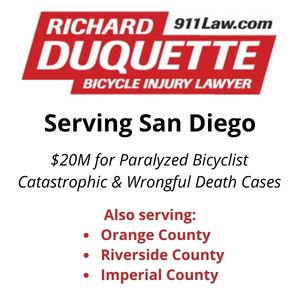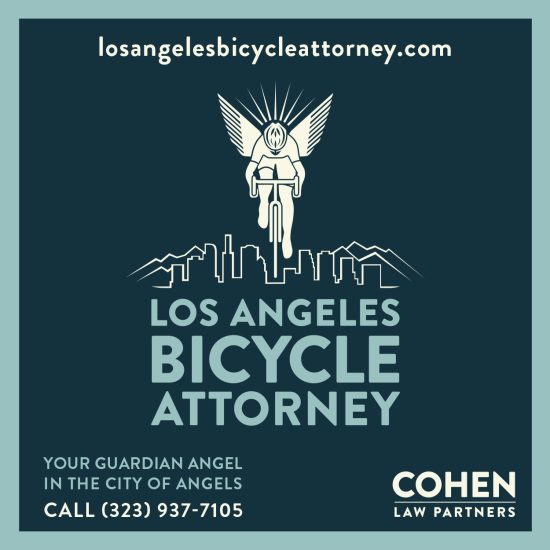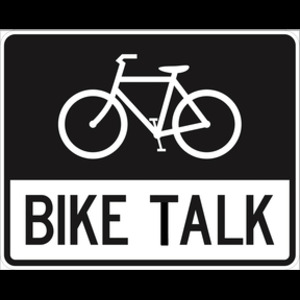Maybe I shouldn’t let it get to me.
But the news reports that a cyclist has been killed or seriously injured. Then you never hear another word about it.
No follow-up. No ID of the victim. No effort to examine what happened or why. Or to look at the lifebehind the news, or the shattered lives left behind.
That’s the way it stood on October 2nd, when a barebones report broke that a 17-year old bicyclist had been killed on Laurel Canyon Blvd in Pacoima.
For days afterward, there was no other mention in the news; no name to put to the tragedy. But as too often happens, it seemed to be forgotten by the media the moment it was reported.
Just one of the 93 people who left home that day who would never return. One more statistic in the annual tsunami of traffic deaths.
Then a week ago, I stumbled on a story in a local Valley paper, the San Fernando Sun.
Daniel Marin.
A senior at Kennedy High School, a ‘”good kid from a religious family” with good grades, “mild-mannered” and a “great looking kid with a smile that would light up any room…”’ according to the paper.
Finally, the statistic had a name. And I assumed that was the end of the story.
But the Sun wasn’t done.
This week, they followed up with another story that went beyond the first to draw a portrait of who Daniel was, and why he was on the street so late that night. And why his death will leave such hole in the lives of those who loved him.
On the night he was killed, Marin said his son had gone to a football game at San Fernando High School with his uncle and cousins. His cousin is a cheerleader at the school. Afterward Daniel went back to his uncle’s house to eat and then he got a call from his friends to get together for an evening bike ride.
“Daniel got a flat tire earlier and we ended up at Ritchie Valens Skate Park, and we all spent time hanging out and talking,” said his friend Jorge Lopez.
Daniel’s best friend, Angel Lopez said it’s been very hard for him and all of his friends. “When I was told what happened, I didn’t believe it. I had to ask four different people before I believed it. I saw Daniel every day. His absence is noticeable for all of us and really hard for me because I’m used to seeing him everyday.
A regular rider on Critical Mass, Daniel had worked with his father to build his own bike, a fixed gear bike he rode everywhere.
“This has been very hard on us,” Marin said, “Daniel has younger brothers and sisters, and it’s hard for all of us. My son was always so respectful to me, he never argued with me. I took him to work with me, doing construction and he decided that he wanted to do something else. He wanted to work in health, giving dialysis treatments to people. You expect that your kids will bury you, not the other way around.
“He was on his way home,” Marin continued. “He was less than a half mile away from home when he was killed.”
I’ve read that last sentence a dozen times. And every time I feel the pain contained in those words.
And that’s exactly how it should be. Any traffic death is tragic; any loss should hurt like hell.
We shouldn’t hide behind minimal news coverage to mask the pain. Unless we feel it, we’ll never do anything about it.
The victims deserve to be remembered with more than just a tombstone and white bike. They should be carried with us in our hearts and in our memories.
Daniel Marin was not collateral damage.
He was a loved and loving son and friend. And as the Sun makes clear, he will be very missed.
I never met Daniel. But after reading about him, I feel like that was my loss. And that our entire community lost someone special that night.
It’s a story that’s definitely worth reading; thanks to the Sun’s Diana Martinez for caring enough to tell it.
Rest in peace, Daniel.
.………
The CicLAvia story just keeps on going. LACBC looks back at Sunday and asks why CicLAvia can’t be every day. Rolling interviews with bike community leaders at CicLAvia, while This Girl’s Bike offers more photos of the day. The City Council commends CicLAvia for a job well done; think you can wait another 6 months for the next one?
.………
Bike Talk airs Saturday at 10 am; listen to it live or download the podcast from KPFK.
Explore the effects of bicycles on art and culture at the Grand Opening of Re:Cycle — Bike Culture in Southern California, October 7th – 9th, at U.C. Riverside’s newly relocated Sweeney Art Gallery at the Barbara and Art Culver Center of the Arts, 3834 Main Street in downtown Riverside. A reception will be held from 6 – 10 pm Thursday, October 7th; the exhibition continues through December 31st.
Bike the Long Beach Marathon course starting at 6 am on Sunday the 17th.
Also on Sunday the 17th, the 2010 Fat Tire Fest takes place at Castaic Lake, featuring exhibitions, riding contests, food and cyclocross races.
Glendale will host meetings to get public feedback on the proposed Safe & Healthy Streets Plan on Monday, October 25 at the Glendale Central Library Auditorium, and Wednesday, October 27 at the Sparr Heights Community Center; both meetings will run from 7 pm to 8:30 pm.
The city’s next big bike event take place in one more week, when New Belgium Brewery’s Tour de Fat makes its first L.A. stop on Saturday, October 23rd.
.………
The Times profiles UCLA parking meister Donald Shoup. More on the success of the LACBC’s City of Lights in getting bike parking for the city’s invisible cyclists. Streetsblog interview’s LACBC’s new Planning and Policy Director Alexis Lantz. The Claremont Cyclist rides to Crystal Lake, with photos. No Whip looks back on 508 merciless miles through the desert. LADOT Bike Blog looks at this weekend’s Fat Tire Fest, not to be confused with next weekend’s Tour de Fat. A Long Beach firefighter finds his life changed by the 525 mile Arthritis Foundation’s California Coast Classic. Riding in Riverside reports on our inland neighbor’s latest Bicycle Advisory Committee meeting. The hit-and-run epidemic strikes again the San Diego area. Plans for a bikeway in Santa Cruz’ Arana Gulch fall one vote short of success. San Francisco puts bike counters in bike lanes; hey, why didn’t anyone here think of that? Dealing with the trauma of killing a cyclist.
Peter Jacobsen explains his vision for zero traffic deaths. Calling all LAB member — Cyclelicious says it’s time to reform the board. Why is AAA picking on cyclists, when so many cyclists are drivers, too? Bicycling rates 16 essential bike tools. Riding a bike for perfectly selfish reasons. Evidently, there’s nothing suspicious about running down a cyclist from behind. The anti-bike backlash rears its ugly head in NYC. Buffalo Bills Safety Bryan Scott rides his bike to practice. Biking through the drive-through window. Dave Moulton encounters cyclists who seem to have no idea how to ride in traffic, or a bike path. Bob Mionske offers advice on riding in poor light conditions following the death of a popular cyclist. A Connecticut man pedals to the hospital after being shot in the ankle. Baltimore doubles its rate of bike commuting. An Army Major remains in critical condition more than two weeks after a distracted driver plowed down five riders on a group ride, saying he just didn’t see them.
So much for Omerta, as Danilo di Luca’s two-year ban for doping is cut to 15 months for cooperating with investigators. Pro riders plan to protest at Saturday’s Giro de Lombardia over the Italian anti-doping chiefs recent comments that all riders already dope; maybe it only seems that way. Stiffer sentences for crimes against cyclists in England than north of the border in Scotland. Brit cyclists are up in arms over a needless warning stripe marring a bikeway. Belfast cuts its cycling budget by 98%. Park your bike illegally in Copenhagen, and you could get your tires pumped and your chain oiled. Wellington, New Zealand’s new mayor says she’d rather ride her bike than trade it for the $70,000 official mayoral car. Good advice on riding in traffic; just remember it’s written for the UK, so substitute right side for left. Or you could just check out this American refresher on how to share the road.
Finally, a Bay Area dog earns a merit badge for bicycling. No, really.






Thanks for the follow-up on Daniel Marin. It is unfortunate that we normally never see any reporting after the initial tragedy. Making something more personal to everyone could help people think twice about their actions.
I understand your grief and shock at the news of cyclists’ death.
But I find your preoccupation with the lack of media coverage a little self-centered and odd.
People die for all kinds of reasons every day, and none of these reasons are considered noteworthy. Malaria in an African country. Starvation. Preventable deaths from the flu or malnutrition. Traffic deaths from distracted driving. Gang violence. Etc, etc, etc.
I think it would be a far more productive question to ask, “How is it that these mundane tragedies occasionally break through and become important to the media, and by doing so reach mainstream society in ways they never have before?”
Consider the very recent example of gay suicide. LGBT activists have known that gay youth kill themselves at appallingly high rates for years now. And still for years, not a single gay suicide raised more than a blip on the media’s radar. Then all of a sudden, through a spate of high-profile suicides, the nation got talking about this issue. Celebrities created the “it gets better” project, City Council members in Texas told their coming out stories, politicians from both sides of the aisle gave lip service to gay youth in their stump speeches.
How did this happen? Was it because the “gay suicide” stories were linked to “cyber-bullying,” a contemporary story that was more attractive to the media? Was it the coincidence of known gay suicides within a few weeks? Was it because the issue had been brewing long enough that some high-profile people, like Ellen, decided it was finally time to take a stand?
I don’t have the answers to these questions. But I do think that cyclist deaths are very similar to gay suicides. They happen all the time, and the people who pay attention know there are systematic problems at work, but other than that no one seems to notice. So we should ask ourselves what it will take to break through to the media and make this a story that people will care about. It might take years before we have the apparatus and social consciousness to get Oprah and Ellen saying, “enough.” Maybe it will just take one stroke of marketing genius or one charismatic politician. I don’t know. But it’s too privileged of us to presume that our issue is more important than gang violence or hunger or gay suicide or any of the other things that kill people – and then to whine about all the media coverage we’re not getting.
I understand what you’re saying, Herbie. But while I focus on cyclists, I don’t think that our issue is more important than the others; I think it’s just more taken for granted.
Biking & pedestrian deaths — and all traffic deaths — have become an acceptable cost for the mobility of our society. Part of my concern with this issue is to say it’s not acceptable and the cost is far too high. One death is one too many.
And yes, I would say, and have said, exactly the same thing about gang violence, gay bashing and a number of other issues. I don’t mention them here simply because I try to keep the focus on bicycling.
My other complaint is that the very first thing taught when I studied journalism a long time ago in a galaxy far, far away, was that every news story needs to answer the five Ws — who, what, where, when and why, as well as how.
Prior to the Sun’s stories, the only news reports answered what — a 17-year old cyclist — where — on Laurel Canyon in Pacoima — and when — 2 am Saturday morning. Left unanswered were how the collision occurred, why it happened, and most importantly, who the victim was. And why anyone should care.
Because of cutbacks in news staffs and budgets, those questions seldom get answered any more, yet the answers are just as important as they ever were. In answer to your question, people care when they know who the person was who was killed, and why.
Few people cared when a nameless young man was found dead in a river; they cared when they found out that Tyler Clementi killed himself because he was humiliated after a sexual encounter was broadcast on the internet without his knowledge, and that he wasn’t the only young gay person to take his or he own life. Just as few people cared when a young cyclist died; it mattes to them when they get to know the friendly, caring student whose death has devastated his family and friends, or the father who will never know the man his son was in the process of becoming.
When one of my childhood best friends was killed by a drunk driver just before my senior year of high school, it was reported on the front page of the newspaper, with follow-up stories about the curse of drunk driving and the devastating effect it had on our senior class. Daniel’s death, under very similar circumstances, barely merited a few paragraphs from any of this city’s countless news outlets, let alone a single mention of his name, until the Sun’s moving story.
I know our news media isn’t what it used to be, and they have their hands full covering the latest breaking news about Lindsey Lohan. But I don’t think it’s too much to ask that when they report the news, they actually report the whole story.
“But it’s too privileged of us to presume that our issue is more important than gang violence or hunger or gay suicide or any of the other things that kill people – and then to whine about all the media coverage we’re not getting.”
Sorry Herbie, but I have to disagree with you. Life lost is life lost and if we start to play the ranking of importance game then it’s almost as if loss of life only matters depending on the issue around it. We all have different interests and issues that hit closer to home so what’s important to one person shouldn’t trump the very real worries and tragedies of someone else. I think it’s all important, really.
But given that this is a cycling blog, and many of us who read it cycle and have either been hit by a car, know someone who has, or have lost someone that was riding, then I think BikingInLA is only doing best by his audience. What you call a mundane death is really only mundane in the sense that someone lost their life doing something mundane, ie, just going home. If we can’t even get the basic security to go home or go around the block without the high possibility of getting killed by a car, how does that affect someone less than the possibility of going out and getting shot?
I think it’s important to call out a city on its dangerous streets and even more important to call out the local news media for not digging into the vehicular deaths that keep rising in our city. If people were getting killed by a hail of bullets, surely an investigation would be done or at least find the link in society as to why those tragedies keep happening. But people getting hit by drunk drivers while on their bike or on foot and we’re supposed to accept that as just another mundane death in our city because people are dying in war, in poverty, and from bullying? It’s all important and it should all be treated with more than a blip of just another death on the streets where we live.
I don’t think it’s privileged to ask the news media to put a human face on a fallen cyclist just cos we don’t have a celebrity endorsement.
I just wanted to say that I was moved to tears by Ted’s retelling of Daniel Marin’s story.
I guess I should rephrase – I’m certainly sympathetic to cyclists’ deaths, and to pretty much all deaths, now that I think about it.
I just think it’s naive to expect the media to be sympathetic. The media is by its nature concerned with what is sensational, NOT what is important. Of course we should hold the city accountable, and of course we should not allow even one more person to die cycling. I feel strongly about that, sure. But I also think that any criticism of the media has to recognize, soberly, the larger problems with the media – namely, that it is biased against facts and analysis and biased toward sensationalism and egos.
Now no one has picked up the question that remains – rarely the media DOES seem to be concerned with right and wrong, and with actual causes and effects, as when it recently fixated on gay suicides. How can we capture the rare media interest in matters of injustice? What is it that catches their eyes or ears and makes them all of a sudden start covering a story like gay suicide, or cycling deaths? That is the important question.
I accused Ted of “whining” – that was harsh. Instead let’s say that he criticized the media for not covering an issue.
I think it would be more effective to pursue an actual explanation for why the media does or does not cover an issue and then try to exploit that understanding to raise the profile of cyclists’ deaths.
“Whinning?” I thought you said “winning.”
No, seriously, you make a good point. The problem is the media is conditioned to accept any traffic death as a non-story. Except in the most egregious cases — such as when there’s an usual human interest story or some outrageous element — it’s just so much white noise.
By calling them on it and complaining, we can help raise the profile of these cases, and let them know that there is a substantial part of the population that cares very deeply. Nothing can bring Danny or anyone else killed while riding a bike back to life, but if we can increase news stories and get the public to see bike riders as human beings, even in death, it may save other lives down the road.
Herbie, you are absolutely right. It’s not a sexy issue for news outlets because it can’t be made into something sensational. That’s where I have to really give a lot of credit to blogs and the cycling community because people online do a better job at putting a person’s name, face, life, and experiences into a story that the journalists do. The blogosphere moves these victims beyond just a statistic and makes them into a person. So how do you get those journalists to do the same? That’s the million dollar question.
On some level, I feel like papers overlook these kinds of tragedies because they are expected and we, as a society, have come to accept the casualties that come from being on the road. Maybe we’ve even become desensitized to the real loss of life that comes from getting from point A to point B. So how can the stories of victims even make it into a paper when there is such reader apathy? I think that would be a good place to start. We need to look into ourselves and re-evaluate what we think is important. Do we want to drive faster and be a hazard on the road? Or do we give up our sense of entitlement and accept that we will lose a few minutes but we’ll all be safer for doing so? We should also make a bigger stink about drunk drivers and refuse to accept them as a statistic of the roads. Maybe there has to be more community outrage to remind people of what the statistics mean. Maybe papers just have to take a chance and humanize the victims. I don’t really know what the answer is but I do know that papers want to pander to readers and if they gloss over people’s deaths, it could be because they don’t think we care.
I think this is a great time to be a cyclist in LA because people are being heard, we are more visible, and maybe a part of the public is starting to see us as traffic. We should totally whine and be dreamers and continue to remind people of the ones we have lost. If we show that we care, maybe others will follow suit.
Maybe a good place to start would be an L.A. Ride of Silence. It gets a lot of press around the world, and large turnout here could garner some real attention.
Just imagine a few thousand cyclists riding down Wilshire Blvd, slowly and silently…
[…] On Friday October 15, people of all ages showed up to pay their respects to Daniel Marin and take part in his memorial ride. Danny and his friends used to ride out to LACM and far away rides all over the city and they wanted to start a local ride called Funky Fridays. This story struck a chord for me, and I’m glad other local cyclists are are re-telling this story. […]
Thank you for posting this. Thank you for posting everything that you have been posting about Daniel. Coming from someone who personally knew him, someone that grew up with him, someone that saw him everyday, it really means alot. His story SHOULD be heard. As well as other stories of people who have lost there lives. Why is anyone elses death more important. Death is death. Knowing that people are reading this, people who didnt know him personally are feeling the same sadness as us, it makes everything feel better.
It makes it feel like we lost someone special but the world is going to know how special they were.
Hes not just some kid who got hit by a drunk and died. People will know He was a loving person with a beautiful smile. Who loved to ride his bike and make me people happy. He was never mad or never sad, always lauging and joking. He was friends with SO many people and didnt have one hater. He was a senior in high school who had hopes and dreams and plans for the future. He was a role modle for his younger brothers and sisters. He loved art and music. He wouldve been 18 in less then 4 months.
He wasnt JUST a 17 year old who was killed by a drunk driver.
HIS NAME IS DANIEL MARIN. BORN FEB. 16 1993 DIED OCTOBER 2ND 2010. HE WILL ALWAYS BE MISSED AND NEVER FORGOTTEN. HIS NAME, HIS FACE, HIS SMILE, HIS BEAUTY WILL ALWAYS BE ENGRAVED IN OUR MEMORIES<3
I miss you Danny. We love you. It hurts me to wake up everyday and have to realize over and pver again I'll never see you again. I'll never talk to you or hear your voice.
Your resting easy riding in the sky. Save a spot for me up there Deft. Ride in Paradis</3
I’m so sorry for your loss. I didn’t know Danny, but comments like yours make me feel like we all lost someone very special that night.
I do know what you’re feeling, though. I lost a good friend I grew up with when I was about the same age, under very similar circumstances. He was also 17, just weeks from our senior year of high school, when he was killed by a drunk driver, along with another guy.
Right now, it probably seems like nothing will ever ease the pain you feel. But it does get better. Keep Danny in your heart, and remember him with a smile when you see something that reminds you of Danny, or do something you used to enjoy together. And do something great with your life.
After all these years, I still miss Mark, and it still brings a tear to my eye when I think about him. But I have to smile when I remember the good times we had, and I’m very glad I had a chance to know him — even if it wasn’t for as long as I wanted.
I have a feeling you may feel the same way one day.
Hang in there, my friend.
I will miss my friend danny every day i wonder were hes at school i just sit there thinking what could of become of him ..my friend always read books at lunch time while we were having a decent meal … Rest in paridise daniel marin
[…] has been keeping us in the loop on the Shawn Fields hit and run case, which ended the life of Danny Marin, a 17-year old Kennedy High School student. Details and recent developments […]